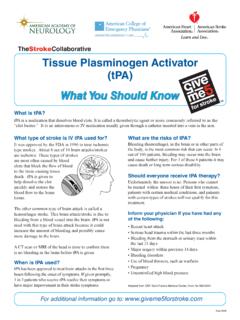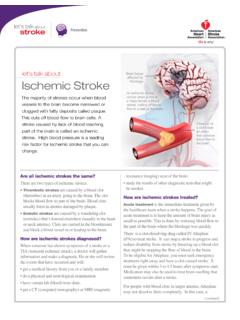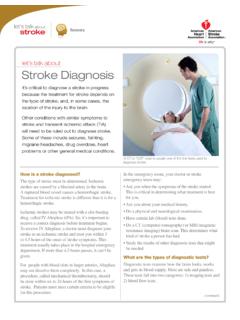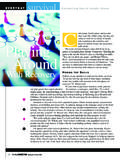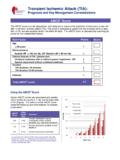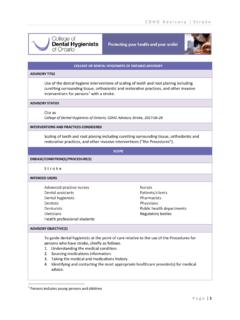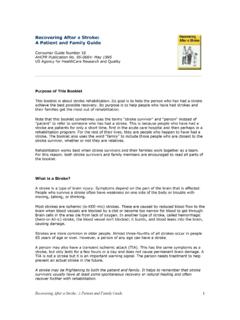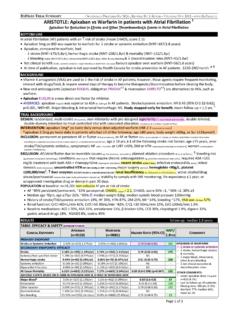Transcription of New Guidelines Released for Treating Ischemic …
1 July/August 200626he American stroke association recently Released new evidence-based Guidelines for preventing stroke in people who ve had an Ischemic stroke or a transient Ischemic attack (TIA). Both Ischemic strokes and TIAs are caused by clots that block blood fl ow to the brain. The key to preventing another stroke is to work closely with your doctor to create a clear treatment plan with risk reduction goals. Below we ve provided some information from the Guidelines in plain English to help you do just that. Some of the most common risk factors are covered. You may want to take a copy of this article with you the next time you visit the doctor. If your doctor hasn t seen the new Guidelines yet, they are available for anyone to view at Guidelines also give recommendations for antiplatelet/anticoagulation treatment for people whose Ischemic stroke was caused by a cardiac disorder.
2 About 20 percent of all Ischemic strokes are caused by cardiac disorders. Of these, atrial fi brillation, which affects more than 2 million Americans and becomes more frequent with age, causes over 75,000 strokes per year. The new Guidelines discuss some other factors that we can t cover here. They include: What This Means for YouTalk to your doctor about these new Guidelines . Your doctor can advise you about which recommendations are most important for you and what goals are appropriate for you. Taking control of your own health is important. Not only will you reduce your risk of a stroke , but you ll feel more confi dent about your health because you ll have more control. New Guidelines Released for Treating Ischemic stroke , TIA PatientsTREATMENT RECOMMENDATIONS Antiplatelet agents are recommended over anticoagulants to reduce risk.
3 Aspirin (50 325 mg/d), combining aspirin and extended-release dipyridamole, and clopidogrel are all safe and OK for initial therapy. Combining aspirin with dipyridamole is suggested over aspirin alone. Selecting an antiplatelet should be individualized based on the patient s risk factors, tolerance, etc. Adding aspirin to clopidogrel raises the risk of bleeding and isn t routinely recommended. Clopidogrel is a reasonable substitute for people allergic to aspirin. No evidence shows that people who ve had an Ischemic event while taking aspirin will benefi t from increasing the for Antiplatelet or Anticlotting Drugs as Therapy for Ischemic stroke not Caused by Blood Clots Coming from the Heart or TIA acute MI and LV thrombosis arterial dissection atrial fi brillation cardiomyopathy cerebral hemorrhage cerebral venous sinus thrombosis hypercoagulable states (including inherited thrombophilias, antiphospholipid antibody syndrome) hyperhomocysteinemia large-artery atherosclerotic disease patent foramen ovale postmenopausal hormone replacement therapy (HRT)
4 Pregnancy sickle-cell disease valvular heart diseas
